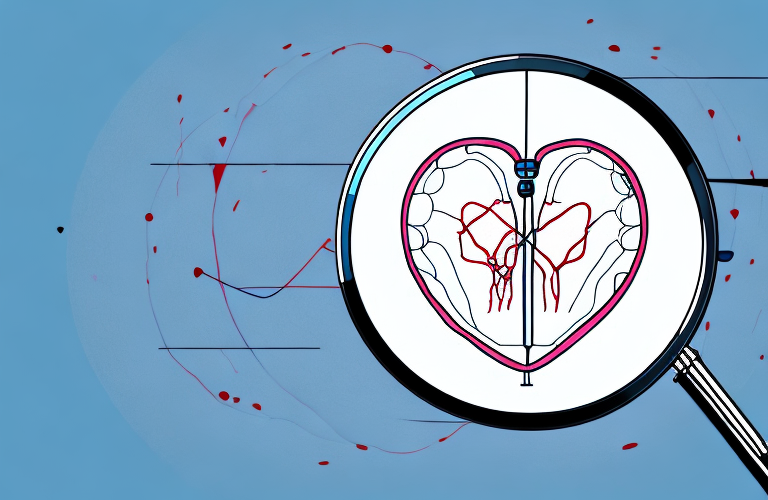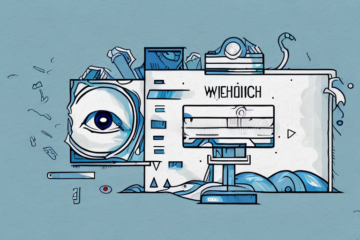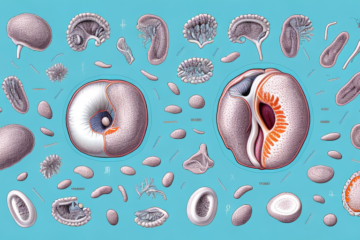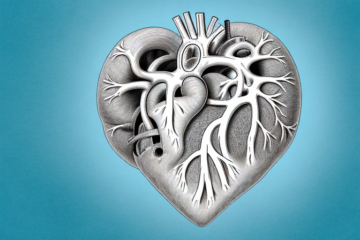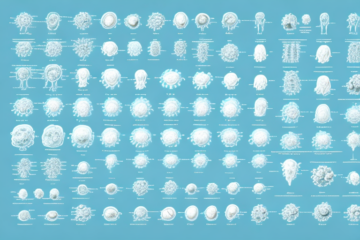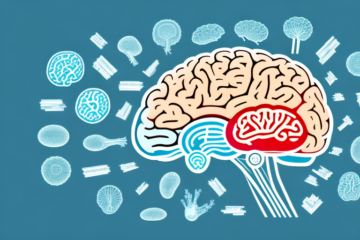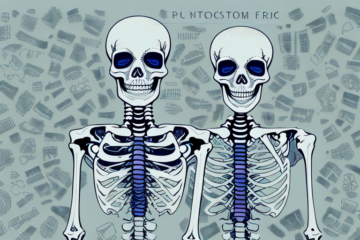Hypertension, also known as high blood pressure, affects an estimated 1 billion people worldwide. This chronic condition is a leading risk factor for heart disease, stroke, and kidney failure. In this article, we’ll explore the symptoms, causes, treatment and more of hypertension, providing an in-depth look at this condition affecting so many people around the globe.
Understanding Hypertension: Definition and Types
Hypertension is a condition in which a person’s blood pressure consistently measures at or above 130/80 mm Hg. Blood pressure readings measure how forcefully blood is pressing against the walls of the arteries. The higher the blood pressure, the harder the heart is working to pump blood, which can lead to various health complications.
There are two types of hypertension: primary and secondary. Primary hypertension is the most common type and has no identifiable cause. Secondary hypertension is caused by an underlying medical condition or medication and is less common than primary hypertension.
It is important to note that hypertension often has no symptoms, which is why it is often referred to as the “silent killer.” Regular blood pressure checks are crucial in detecting and managing hypertension. Lifestyle changes such as maintaining a healthy weight, exercising regularly, reducing salt intake, and quitting smoking can also help manage hypertension. In some cases, medication may be necessary to control blood pressure levels.
Prevalence of Hypertension: Who is at Risk?
Hypertension affects people of all ages, races, and genders, but it is more common in adults over the age of 45. Other risk factors include obesity, diabetes, smoking, a sedentary lifestyle, and a family history of hypertension.
Additionally, certain ethnic groups such as African Americans, Hispanics, and Native Americans have a higher risk of developing hypertension. This may be due to genetic factors as well as lifestyle and environmental factors.
Furthermore, stress and lack of sleep have also been linked to an increased risk of hypertension. Chronic stress can lead to elevated levels of cortisol, a hormone that can increase blood pressure. Similarly, inadequate sleep can disrupt the body’s natural rhythms and lead to hypertension over time.
Primary Causes of Hypertension: Genetics and Lifestyle Factors
While the exact cause of primary hypertension is unknown, genetics and lifestyle factors are known to contribute to the development of the condition. Studies have shown that people with a family history of hypertension are more likely to develop the condition. Lifestyle factors such as a high salt diet, alcohol consumption, and a lack of physical activity can also increase the risk of developing hypertension.
Other lifestyle factors that can contribute to the development of hypertension include smoking, stress, and obesity. Smoking can cause damage to the blood vessels and increase blood pressure. Chronic stress can also lead to high blood pressure by causing the body to release stress hormones that constrict blood vessels. Obesity can also increase the risk of hypertension by putting extra strain on the heart and blood vessels.
Secondary Causes of Hypertension: Medical Conditions and Medications
Secondary hypertension is caused by an underlying medical condition, such as kidney disease, thyroid disorders, or obstructive sleep apnea. Certain medications, such as birth control pills and some over-the-counter pain relievers, can also cause secondary hypertension.
Other medical conditions that can lead to secondary hypertension include adrenal gland tumors, congenital heart defects, and chronic alcohol abuse. Additionally, certain prescription medications, such as corticosteroids and antidepressants, can also contribute to the development of secondary hypertension.
Common Symptoms of Hypertension: Signs to Watch Out For
Hypertension is known as the “silent killer” because it often has no noticeable symptoms. However, some people may experience headaches, dizziness, shortness of breath, or nosebleeds. These symptoms are not specific to hypertension, so it’s important to get a blood pressure check if you experience any of them.
In addition to the common symptoms mentioned above, hypertension can also cause fatigue, chest pain, irregular heartbeat, and vision problems. It’s important to note that these symptoms can also be caused by other health conditions, so it’s crucial to consult a healthcare professional for an accurate diagnosis. If left untreated, hypertension can lead to serious health complications such as heart attack, stroke, and kidney failure.
Complications of Hypertension: How it Affects the Body
Over time, hypertension can damage the walls of the arteries, leading to a range of complications. The most common complications of hypertension include heart disease, stroke, kidney disease, and peripheral artery disease. Hypertension also increases the risk of developing aneurysms and vision loss.
Additionally, hypertension can also affect cognitive function and increase the risk of developing dementia. Studies have shown that individuals with high blood pressure have a higher likelihood of experiencing cognitive decline and developing Alzheimer’s disease. It is important to manage hypertension through lifestyle changes and medication to reduce the risk of these complications.
Diagnosis of Hypertension: Tests and Measurements Used
Diagnosis of hypertension involves measuring a person’s blood pressure using a blood pressure cuff. Multiple readings may be taken over a period of time to confirm a hypertension diagnosis. A doctor may also perform other tests, such as blood and urine tests, to determine any underlying medical conditions causing the hypertension.
In addition to blood pressure measurements and other medical tests, a doctor may also ask about a patient’s lifestyle habits, such as diet and exercise, to determine if any changes can be made to help manage hypertension. They may also ask about family history of hypertension or other related medical conditions.
If a patient is diagnosed with hypertension, the doctor may recommend lifestyle changes, such as increasing physical activity and reducing sodium intake, as well as medication to help lower blood pressure. Regular check-ups and monitoring of blood pressure levels are important for managing hypertension and preventing complications.
Treatment Options for Hypertension: Medications and Lifestyle Changes
The first line of treatment for hypertension is often lifestyle changes. These can include weight loss, reducing salt intake, avoiding alcohol, increasing physical activity, and quitting smoking. Medications may also be prescribed to lower blood pressure. The most common medications for hypertension include diuretics, ACE inhibitors, and calcium channel blockers.
In addition to lifestyle changes and medications, there are other treatment options for hypertension. For some patients, surgery may be recommended to treat underlying conditions that contribute to high blood pressure. Another option is alternative therapies, such as acupuncture or relaxation techniques, which may help to reduce stress and lower blood pressure. It is important to work with a healthcare provider to determine the best treatment plan for managing hypertension.
Managing Hypertension Through Diet and Exercise
A healthy diet and regular exercise are key components of managing hypertension. A diet rich in fruits, vegetables, whole grains, and lean protein can lower blood pressure. Regular exercise can also reduce blood pressure and improve overall health. People with hypertension should consult with their doctor before starting an exercise program.
In addition to diet and exercise, stress management techniques can also help manage hypertension. Stress can cause temporary spikes in blood pressure, so finding ways to manage stress can be beneficial. Techniques such as deep breathing, meditation, and yoga can help reduce stress levels.
It is also important for people with hypertension to monitor their sodium intake. Consuming too much sodium can increase blood pressure. Reading food labels and choosing low-sodium options can help keep sodium intake in check.
Alternative Therapies for Hypertension: Acupuncture, Yoga, and More
Alternative therapies such as acupuncture, yoga, and meditation may help reduce hypertension. While these therapies have not been proven to be effective in treating hypertension, they can be used in conjunction with traditional treatments to manage blood pressure levels.
Acupuncture involves the insertion of thin needles into specific points on the body to stimulate the nervous system and promote healing. Some studies have suggested that acupuncture may help lower blood pressure by reducing stress and improving circulation. However, more research is needed to confirm these findings.
Yoga and meditation are also popular alternative therapies for hypertension. These practices can help reduce stress and promote relaxation, which may help lower blood pressure. Additionally, certain yoga poses, such as forward bends and inversions, can help improve circulation and reduce strain on the heart.
Preventing Hypertension: Tips for a Healthy Lifestyle
The best way to prevent hypertension is by maintaining a healthy lifestyle. This includes eating a balanced diet, maintaining a healthy weight, quitting smoking, reducing alcohol consumption, and getting regular exercise. Additionally, monitoring blood pressure levels regularly can help identify any potential issues early on.
Another important factor in preventing hypertension is managing stress levels. Chronic stress can lead to high blood pressure, so finding healthy ways to manage stress, such as practicing yoga or meditation, can be beneficial. It’s also important to get enough sleep, as lack of sleep can contribute to hypertension. By making these lifestyle changes, individuals can significantly reduce their risk of developing hypertension and improve their overall health.
Living with Hypertension: Coping with the Condition on a Daily Basis
Coping with hypertension can be challenging, but it is essential for managing the condition. Patients with hypertension should work closely with their healthcare provider and monitor their blood pressure regularly. A support system, including family, friends, and support groups, can also help with emotional support and managing stress.
In addition to working with healthcare providers and having a support system, lifestyle changes can also help manage hypertension. These changes include maintaining a healthy weight, exercising regularly, reducing salt intake, and limiting alcohol consumption. Quitting smoking and managing stress through relaxation techniques such as meditation or yoga can also be beneficial.
Support Groups for People with Hypertension: Finding Help and Community
Support groups can provide a safe space for people with hypertension to connect with others who are going through similar experiences. These groups can provide emotional support, education, and practical advice for managing hypertension on a daily basis.
One of the benefits of joining a support group for hypertension is the opportunity to learn from others who have successfully managed their condition. Members can share their experiences and offer tips on how to manage symptoms, such as monitoring blood pressure and making lifestyle changes.
Additionally, support groups can provide a sense of community and belonging for those with hypertension. It can be comforting to know that you are not alone in your struggles and that there are others who understand what you are going through. This can help reduce feelings of isolation and improve overall mental health and well-being.
Future Research on Hypertension: New Discoveries and Treatment Approaches
Research into hypertension is ongoing, with a focus on developing new treatment approaches and understanding the underlying causes of the condition. Advances in genetic testing may provide insights into how genetics contribute to the development of hypertension, while new medications and therapies may improve treatment outcomes for people with the condition.
One area of research that is gaining attention is the role of lifestyle factors in the development and management of hypertension. Studies have shown that factors such as diet, exercise, and stress management can have a significant impact on blood pressure levels. Researchers are exploring ways to incorporate these lifestyle interventions into hypertension treatment plans, in order to improve overall health outcomes for patients.
Another promising area of research is the use of technology to monitor and manage hypertension. Wearable devices and mobile apps are being developed to help patients track their blood pressure levels and receive personalized recommendations for managing their condition. These tools may also help healthcare providers to better monitor patients remotely and adjust treatment plans as needed.
Conclusion
Hypertension is a common condition that affects many people around the world. While it is often asymptomatic, it can lead to serious health complications if left untreated. By making lifestyle changes and following treatment plans prescribed by their healthcare provider, people with hypertension can successfully manage the condition and reduce their risk of complications.
It is important for individuals with hypertension to monitor their blood pressure regularly and keep track of any changes. This can help them and their healthcare provider make informed decisions about their treatment plan and make adjustments as needed.
In addition to lifestyle changes and medication, stress management techniques such as meditation, yoga, and deep breathing exercises can also be helpful in managing hypertension. By reducing stress levels, individuals with hypertension can lower their blood pressure and improve their overall health and well-being.

